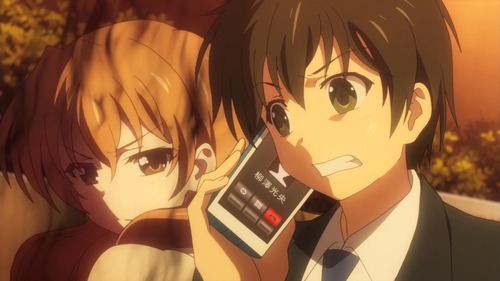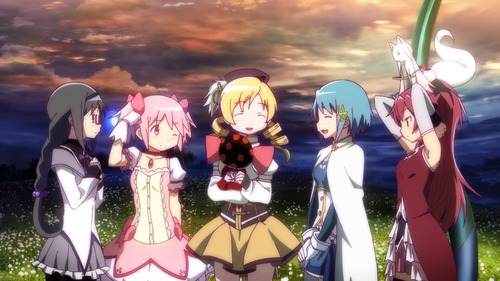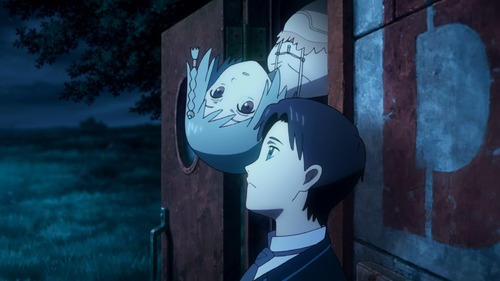2014 anime, the less-bulleted edition, part 1
Here are some more words on things I liked from the year just gone by. Last time, I remarked that nobody reads long posts. I’m getting around that this go-round by splitting this one up into two parts. Ha-ha!
Golden Time

I won’t deny that Golden Time doesn’t make that great of a first impression. The premise of the romance drama reads like a gimmick, what with the main character having amnesia, and the first few episodes stick more or less to the fish-out-of-water formula. If I’d seen Toradora! earlier, too, hearing that both series shared an original author, Yuyuko Takemiya, would have set off more alarm bells in my head. It’s a good thing that didn’t happen, though, because Golden Time is one of the better entries in the genre to come around in a while, taking full advantage of its emotionally fraught setting to draw out memorable performances from Yui Horie and Ai Kayano. And hey, it’s good to have a show in this genre where the cast are all more or less adults for a change. Well, college students. Close enough.
Madoka: Rebellion

I already wrote quite a bit about the theatrical sequel to the original Madoka TV series in a spoiler-filled review back in May. For those of you who don’t want to have the movie ruined, though, or just don’t like reading too much, here’s a summary: stunning animation, a spellbinding score by Yuki Kajiura, and tremendous writing out of Gen Urobuchi – the last of which is all the more impressive given that the ending of the original series didn’t leave much apparent room for a sequel. (If only Psycho-Pass 2 had been in similarly good hands.)
Yasuhiro Yoshiura’s new films

The inimitable filmmaker behind Time of Eve struck again twice last year, and lo, it was good. Patema Inverted was easily the bigger of the two efforts, and it shows in the scale of the world that Yoshiura builds in the film, a (kinda) half-underground half-dystopia that is wholly impressive. The extroverted nature of action adventure isn’t quite to the usually more introspective Yoshiura’s talents – the lead antagonist is nothing if not cartoonish in his villainy – but what separates Patema from, say, Makoto Shinkai’s venture into similar territory with his Children Who Chase Lost Voices from Deep Below is that Patema holds on to a genuine sense of awe and wonder. It’s a great all-ages film, on top of all that.
Flying further under the radar was Harmonie, a thirty-minute short produced for 2014’s Anime Mirai. A concise love story, Harmonie plays more to Yoshiura’s traditional strengths while displaying an atypical, but well-executed, sentimentality. If nothing else, it has one of the more ingenious twists I’ve seen on the old trope of fated encounters.
Stay tuned for part two. Or don’t. Your loss.